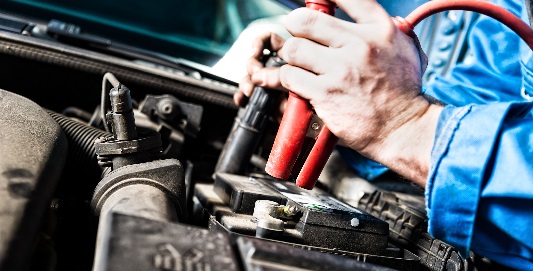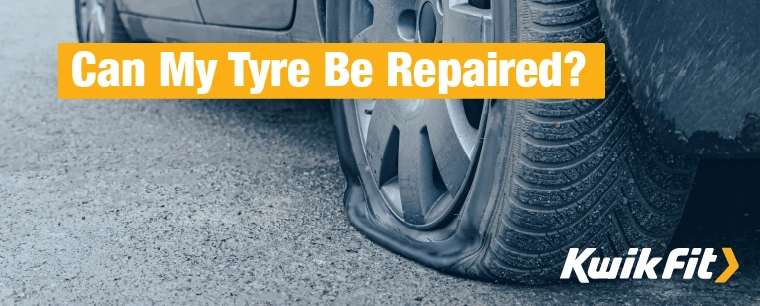How do car batteries work?
Rebecca Taylor | Wednesday 15th January 2020 4:01pm

Ordinarily, you might take your car battery for granted, but this essential piece of kit is the only power source used to get your vehicle started. If youíve experienced battery problems before, youíll know that your car canít do much without this component. In fact, faulty batteries are one of the most common reasons for breakdown calls made by motorists in the UK.
So how do these batteries work, how can you look after yours, and when might you need to get a replacement? Keep reading to find out.
Understanding the basics
Batteries are devices that translate chemical energy into electrical energy. They are made up of cells that store chemical energy and transform it into electricity on demand. Most petrol and diesel car batteries feature six cells, each of which can produce around two volts of energy - meaning that combined they produce 12 volts.
The majority of these car batteries use a lead-acid chemical reaction. Each of the cells features two plates, one made from lead and the other from lead dioxide. These plates are submerged in sulphuric acid, which acts as a catalyst and triggers a chemical reaction between them. This reaction produces electrons, which generate electricity. The electricity then flows from the battery to start your car engine. The reaction is reversible, which is why your battery recharges as your engine runs and why you can jumpstart it when itís flat.
When you switch the ignition on in your vehicle, this sends a signal to the battery telling it to start the chemical reaction. The electricity produced by this reaction supplies power to the starter motor, which then turns the engine over. At the same time, the battery provides power to the spark plugs, which ignite the air and fuel mixture that is compressed in the engine combustion cylinders.
The power provided by the battery is then replaced by the alternator, which is responsible for supplying most of the electrical current to the electrical systems in your car, and for keeping the battery charged.
The growth of in-car tech means that car batteries now have to power many more systems than they used to. From sat navs to music players and air conditioning systems, there are many things that place added strain on batteries and charging systems. This can increase the risk of batteries failing.
Why batteries go flat
Car batteries should last around five years, or potentially longer, but this does depend on how well they are looked after. Depending on the types of journey you make, you might find your vehicle battery starts to show signs of age from around three years.
Effectively, your battery empties itself in one go when you use it to start the engine. It is then gradually recharged by the engine as you drive. If you make a lot of small journeys, the battery may not have the chance to fully recharge before being used again and itís likely to degrade faster. This could mean you need to replace it more quickly than you would if you regularly made longer trips in your car.
A range of other factors also affect the condition of car batteries, including the outside temperature and how demanding your vehicleís extra electrical systems are.
How to protect your car battery
There are a number of things you can do to help protect your car battery and make it last longer. For example, going for regular drives of half an hour or more will help to ensure it recharges properly. If you donít use your car much, you might want to invest in an intelligent charger that you can leave connected for long periods of time without causing damage to the battery.
Also, make sure you switch all electricals in your vehicle off when you start or park your car. This includes the music system, heaters and windscreen wipers. You can also dip the clutch when you start the car to reduce the load on the starter motor and battery.
When it comes to battery maintenance, itís useful to make sure that the terminal connections are free of debris and are tightly secured. You should also keep them clean. To help prevent the build-up of corrosive material on the terminal connectors, you can coat them with petroleum jelly.
Signs that your battery needs a health check
There are various signs that your battery might need to be checked over by an expert technician. For example, if you notice that the engine cranks more slowly than usual and itís taking longer to start your car, this can be a warning that your battery is about to die. This normally only happens once or twice before the battery dies, so donít ignore it. If you hear a clicking sound when you turn the key in the engine, this means there isnít enough power to crank the engine and youíll need to jumpstart it to get moving.
Another warning sign is losing power to electrical systems like your windows, seats, lights or heaters, while the most obvious indication is an illuminated battery symbol on your dashboard. This could be caused by a failing alternator, damaged cabling or a loose starter terminal.
If you notice any of these issues, itís important to book an appointment to get your car checked out. A technician may be able to fix the problem, or you might need to get a replacement battery for your vehicle. Either way, taking action sooner rather than later will reduce the risk of you being stranded and unable to start your car.
Any facts, figures and prices shown in our blog articles are correct at time of publication.
Featured Articles
Can My Tyre Be Repaired?
Wednesday 22nd November 2023
It can be hard to tell if your puncture can be repaired or not. Read our handy guide to understand if your tyre can be saved or if you need a replacement.
How Long Do Tyres Last & How To Identify Wear
Wednesday 18th October 2023
Driving on old or worn tyres can be dangerous so you need to maintain them properly. Read about how long tyres should last and how to know if your tyres are old.
Wet Weather Driving Tips Ė Staying Safe in the Rain
Thursday 27th October 2022
Driving in the rain isnít only a pain but can be surprisingly hazardous Ė here are our top tips for staying safe in wet & icy weather this winter.







